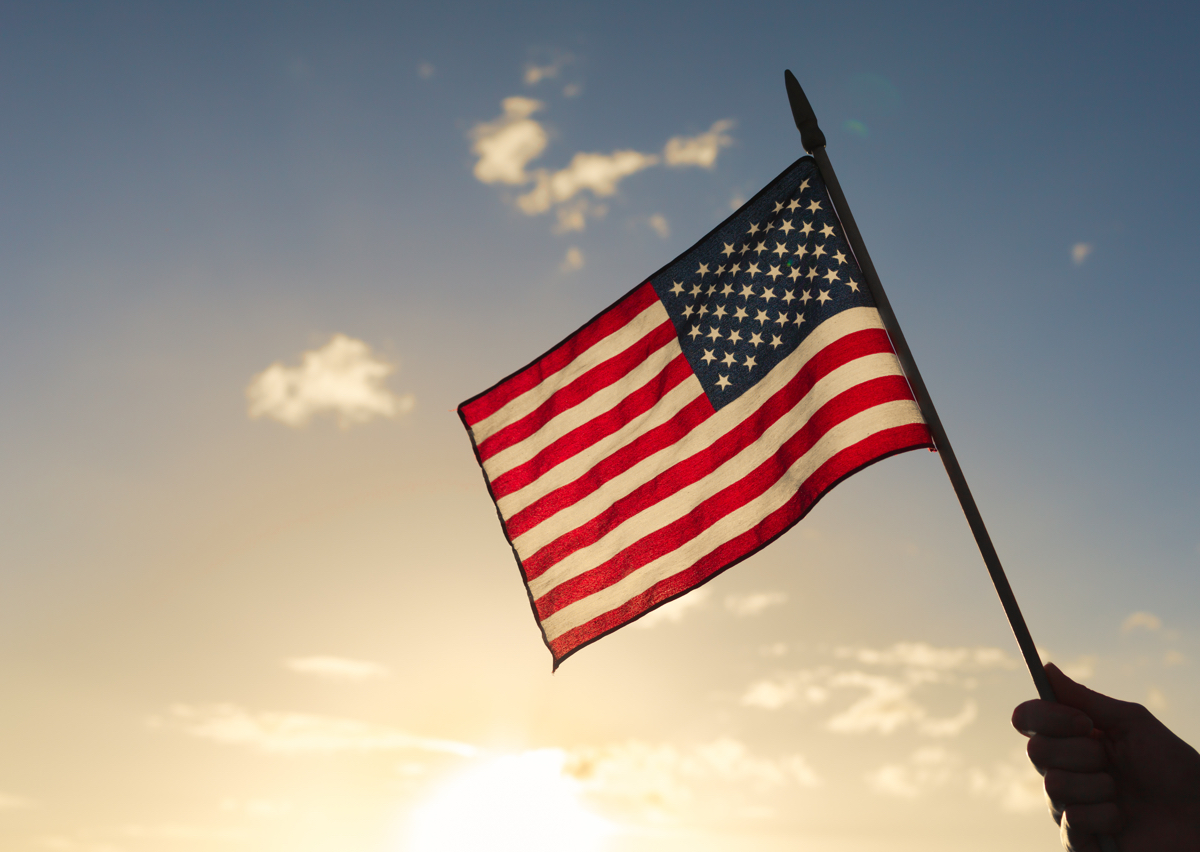Donald Trump Wants to Jail Flag-Burning Hampshire College Students

Photo via iStock.com
I guess we all should have seen this coming.
Outrage about that thing Hampshire College did with the American flag—it had been lowered to half-staff after the election, then someone burned it, then the school stopped flying the flag altogether—has made it all the way to Donald Trump’s tweeting fingers, and the president-elect has some big ideas about what to do with students who desecrate Old Glory: lock them up.
“Nobody should be allowed to burn the American flag – if they do, there must be consequences – perhaps loss of citizenship or year in jail!” he tweeted this morning.
Nobody should be allowed to burn the American flag – if they do, there must be consequences – perhaps loss of citizenship or year in jail!
— Donald J. Trump (@realDonaldTrump) November 29, 2016
He didn’t specifically mention Hampshire, the Western Massachusetts private liberal arts school, but the tweet comes after hundreds of veterans gathered in Amherst on Sunday to protest the school’s decision, which administrators say came amid talks about the role the flag plays in the lives of marginalized people. It’s worth noting that not everyone at the protest agreed with Trump’s assessment of the situation. “They took down my flag, they have a right to that, I’m here to defend their right to do that but I want them to understand how bad that hurts me,” a veteran at the demonstration named Jerry Maguire told WWLP.
Burning of the American flag is, of course, constitutionally protected free speech. The Supreme Court upheld a person’s right to do whatever they want with flags in a 1989 ruling, and again in 1990. Congress occasionally tries to pass constitutional amendments to ban flag-burning, but has never been successful. In 2005, then-Sen. Hillary Clinton co-sponsored an act that would ban flag-burning in some situations. It was also unsuccessful.
Also, for the record, the government cannot revoke a natural-born citizen’s citizenship as punishment for committing a crime. The Supreme Court ruled on that in 1958.
It’s not clear who actually burned the flag, setting the stage for a controversy that has brought lots of scrutiny to the college over the past week. In a statement, Hampshire College says the on-campus flag-burning, which happened the night before Veteran’s Day, is “still under active investigation.
The college also asserts that its president, Jonathan Lash, respects veterans and is not trying to “make a political statement.”
Sunday morning before the demonstration by veterans outside our campus, Hampshire College President Jonathan Lash met with the VFW Amherst leaders organizing the demonstration. President Lash acknowledged their right to demonstrate, and expressed his regret that a still unknown person or persons had burned the college’s flag overnight before Veteran’s Day, the incident is still under active investigation. President Lash listened respectfully to the views of the veterans, and explained that the Hampshire College community includes a wide range of views including employees and students who have served or are currently serving in the US military. President Lash emphasized that by not flying a flag on our college’s flagpole for the time being, the College is seeking to enable a discussion of values among all members of our campus, not make a political statement.Our primary mission is education, and we see this conversation on campus as an important learning opportunity for all of us on campus.
A college spokesman, John Courtmanche, says the school is not commenting directly on Trump’s tweet.
In a statement, Lash (whose father, according to the New York Times, was an army officer in World War II) points out that flags have not been banned outright on campus—they have only been removed from one flagpole—and said that discussions among students about the meaning of the symbol will continue:
The College removed the flag from the main flagpole at the center of campus for a period of time, during which Hampshire aims to discuss and confront deeply held beliefs about what the flag represents to the members of our campus community. Our goal is to give voice to the range of viewpoints on campus across cultures and find common ground. (This is not a campus-wide ban as some media have mistakenly reported, campus members and offices are free to individually display their own flags.) We’ve heard from members of our campus community that, for them and for many in our country, the flag is a powerful symbol of fear they’ve felt all their lives because they grew up in marginalized communities, never feeling safe. For others, the flag is a symbol of their highest aspirations for the country. These differences in viewpoints about the flag have been the focus of many discussions on campus here for more than a year. College staff and faculty have been leading facilitated discussions on campus around this issue this month, President Lash was actively holding meetings on campus last week before the holiday, and more discussions are planned to continue in the coming weeks.

